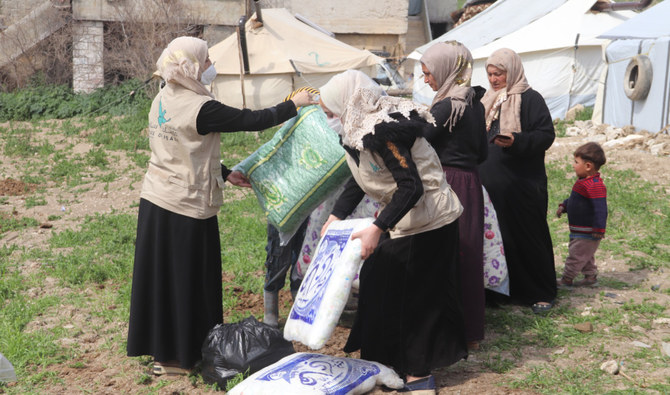
- ARAB NEWS
- 03 Jul 2025

LONDON: Women in northwestern Syria are stepping outside of their conventional roles, often at risk to their safety, to provide humanitarian relief in areas ravaged by more than a decade of war and, most recently, devastated by the deadly earthquakes that hit the area in February.
The work these women are doing has gained a higher profile in recent months, altering social attitudes about their participation in humanitarian work in the process, according to a report published recently by the UK-based charity Action for Humanity.
The twin earthquakes that devastated large parts of northern Syria and southern Turkiye on Feb. 6 killed 6,000 Syrians and left about 5 million homeless, according to UN figures. This in an area that had already suffered massive destruction during Syria’s long-running civil war.
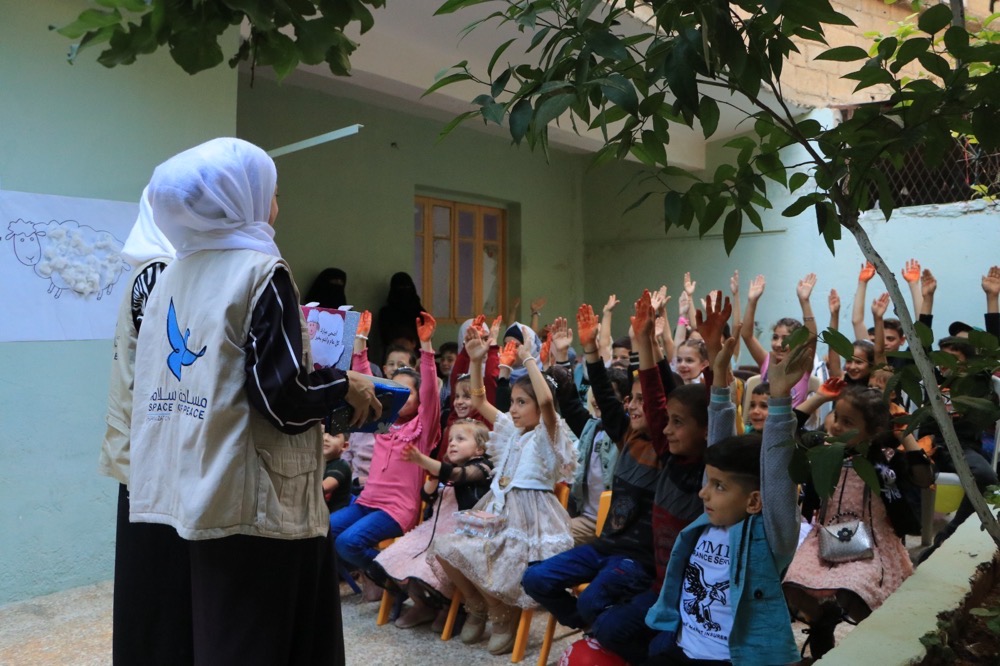
“When the earthquake struck, we hurried to the camps because people took refuge in them and in the open,” said Diana Al-Ali, the head of Souryana Organization, a charity founded by women and based in the northwestern Syrian province of Idlib.
The organization has distributed various types of relief to communities affected by the earthquakes, including incontinence products for people with disabilities, and “dignity baskets” for women that include menstrual-hygiene products.
Umm Issam, who works with Action for Humanity, said she has helped deliver a wide range of aid, even emergency mental health care.
“We also provided basic needs for infants and children, including milk, diapers, water and clothes, along with means for heating in temporary shelters,” she told Arab News.
Given their proximity to the areas worst affected by the earthquake, women such as these have “played vital roles, including rescue operations, humanitarian assistance, and addressing the specific needs of marginalized communities,” according to Action for Humanity.
The charity’s report, titled “Recognizing Resilience: Women’s Leadership in Northwest Syria’s Earthquake Response and Beyond,” was published on June 7, ahead of the Seventh Brussels Conference, the EU’s main pledging event for Syria this year, which took place on June 14 and 15.
Despite the significant recent advances in the participation of women, and their overall status, the situation in war-torn northwestern Syria nonetheless remains bleak for women and girls, many of whom continue to face numerous obstacles. The aid workers have experienced this firsthand.
“Some male (members of the community) objected to our work and our presence among families and men, saying we had to only do domestic work,” said Al-Ali. “But my team and I never backed down.”

Umm Issam said that some groups in her community “reject women’s active role,” undervalue their efforts, and even tried to wrest control over aid-distribution mechanisms away from them. There have even been cases of physical violence carried out by such groups, with the aim of hindering women’s work.
“We were attacked (by men) while we distributed aid,” said Sarah, a local humanitarian worker whose name has been changed to protect her safety.
“They asked what we were doing there, why we stood there, what business we had distributing aid, why it was not a man doing the job.
“But after a while, those men started to respect and even help us.”
Al-Ali lamented the fact that “there is no regard for women” and “women’s participation is very low” in the areas where her team operates. Far from being discouraged by seemingly insurmountable challenges and obstacles, however, she and her colleagues grew even “more determined to keep going,” she said.
“We wanted to help people because they needed us, and INGOs (international non-governmental organizations) were communicating with us because they trusted us. We helped them a lot,” she added.
“As we proved ourselves in the camp, men began to help and support us when they saw tangible results.”
Suicide rates and cases of gender-based violence have reportedly increased in the months since the earthquakes. Sarah said suicide is rife among displaced women and girls, both inside and outside of the refugee camps, which are overcrowded, forcing several families to live together in small, confined spaces, exacerbating an already dire economic and humanitarian situation.
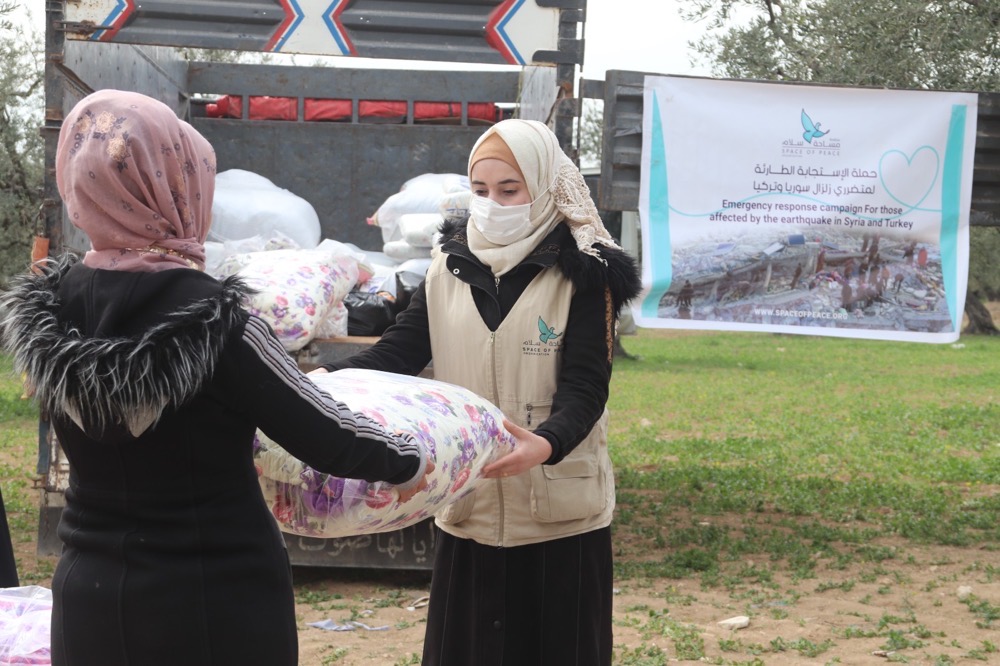
Early marriage has become the “most prominent” form of post-earthquake gender-based violence, according to Maysoon, who works for the humanitarian organization Space of Peace, which is active in Syria and Turkiye.
The increase in incidences of early marriage is partly the result of more young people dropping out of school after losing their homes and official documents in the earthquake, she told Arab News.
Speaking at an Action for Humanity virtual roundtable event on June 13, she said that post-earthquake aid only reached the Ariha district of Idlib, where she is based, thanks to help from local women. In addition, educational programs designed to address gender-based violence have become more accepted, or at least tolerated, because of women’s growing involvement in humanitarian work, Maysoon added.
“In May, a campaign our team ran about the risks and consequences of early marriage attracted 277 men, women, boys and girls,” she said. “Society now recognizes women’s ability to bring in resources.”
According to Action for Humanity’s research, the main obstacles blocking the progress of women toward leadership roles in northwestern Syria include economic constraints, inadequate infrastructure, and the general erosion of social protection measures. These factors also impede the participation of women in Syria’s peace process.
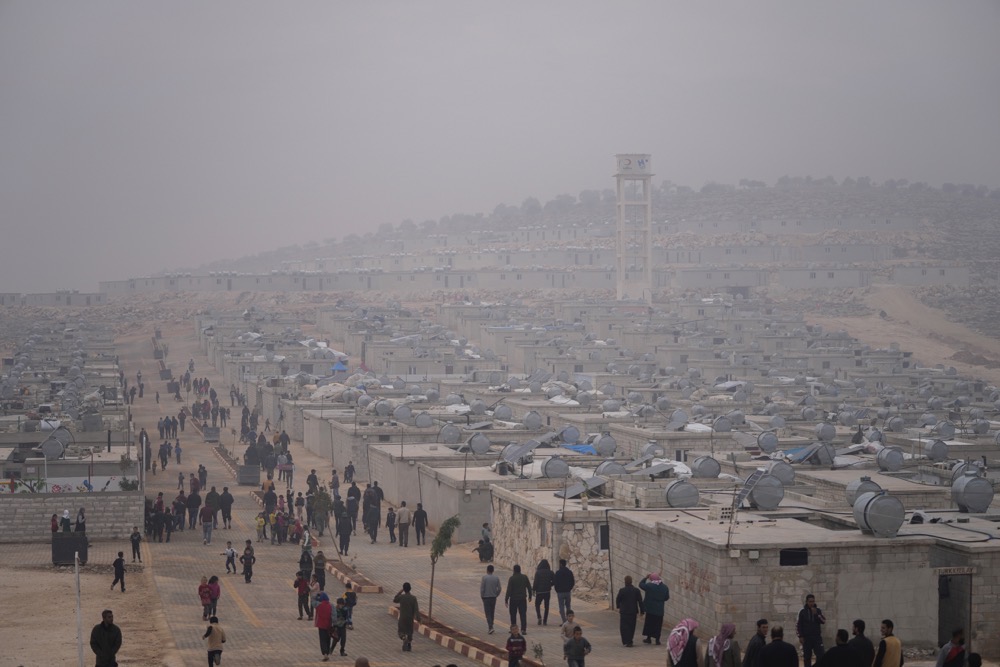
Samara Atassi, the CEO and co-founder of Souriyat Across Borders, a female-led charity that supports refugees and internally displaced persons in Jordan, Syria and the UK, said that women have a crucial role to play in peace talks and their “voices need to be heard.”
She added: “Women bring a unique perspective and experience to peace-building efforts, and their participation can lead to more inclusive and sustainable outcomes.
“Research has shown that when women are involved in peace negotiations, the resulting agreements are more likely to address the needs of all members of society, including marginalized groups.
“Women’s participation in peace-building can also help to prevent conflict and promote social cohesion in post-conflict societies.”
Umm Issam, the Action for Humanity worker, demanded “representation of at least 50 percent” for Syrian women at international conferences to discuss the future of their country.
For her part, Racha Nasreddine, director for ActionAid Arab Region, wants the international community to “ensure that funding reaches local, women-led organizations in northwestern Syria.”
She advocates the promotion of “their participation in the design and delivery of humanitarian responses and programs” and in ensuring that there is “a participatory decision-making process at the local and international levels.”
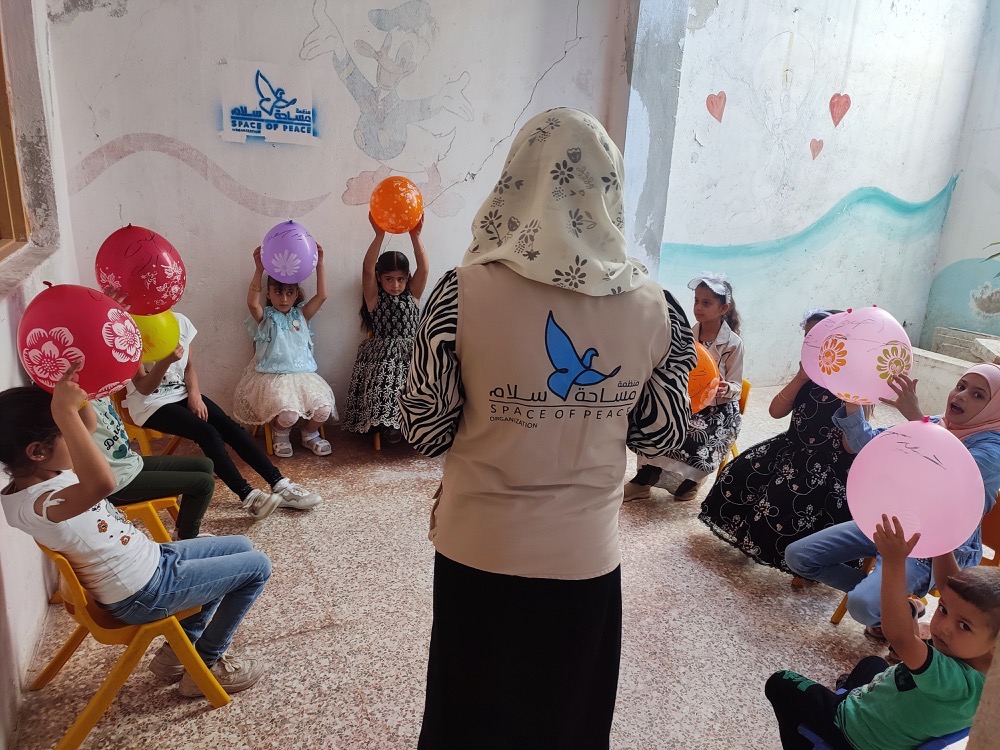
Furthermore, the international community should focus on programs that “invest in women’s leadership development and provide them with capacity-building support,” she told Arab News.
“Another important aspect is to make more funding available to address the barriers preventing the full participation of women, such as economic constraints, care-taking responsibilities, gender-based violence, and health issues … and to ensure that these issues are prioritized,” Nasreddine said.
Commenting on the pledges made by donors at the Seventh Brussels Conference this month, she said the international community “has shirked their responsibilities and failed to commit funding that would help Syria to move from crisis to resilience.”
She added: “Over the past 12 years, gender-based violence and other inequalities have sadly remained defining features for women and girls across Syria. This will only worsen in the coming months and years as the worst cost-of-living crisis on record puts women and girls at even greater risk.
“And yet, despite this, women and girls barely featured in any of the pledges.”